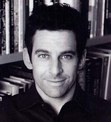You Do Not Choose What You Choose

(Photo by H.koppdelaney)
Many readers continue to find my position on free will bewildering. Most of the criticism I've received consists of some combination of the following claims:
Your account assumes that mental events are, at bottom, physical events. But if the mind is distinct from the brain (to any degree), this would allow for freedom of will.
You admit that mental events—like choices, efforts, intentions, reasoning, etc—cause certain of our actions. But such mental states presuppose free will for their very existence. Your position is self-contradictory: Either we are free to think and behave as we will, or there is no such thing as choice, effort, intention, reasoning, etc.
Even if my thoughts and actions are the product of unconscious causes, they are still my thoughts and actions. Anything that my brain does or chooses, whether consciously or not, is something that I have done or chosen. The fact that I cannot always be subjectively aware of the causes of my actions does not negate free will.
All of these objections express confusion about my basic premise. The first is simply false—my argument against free will does not require philosophical materialism. There is no question that (most) mental events are the product of physical events—but even if the human mind were part soul-stuff, nothing about my argument would change. The unconscious operations of a soul would grant you no more freedom than the unconscious physiology of your brain does.
If you don't know what your soul is going to do next, or why it behaved as it did a moment ago, you are not in control of your soul. This is obviously true in all cases where a person wishes he could feel or behave differently than he does: Think of the millions of good Christians whose souls happen to be gay, prone to obesity, and bored by prayer. The truth, however, is that free will is no more evident when a person does exactly what, in retrospect, he wishes he had done. The immaterial soul force that allows you to stay your diet is just as mysterious as the one that directs you to eat cherry pie for breakfast.
The second concern also misses the point: Yes, choices, efforts, intentions, reasoning, and other mental processes influence our behavior—but they are themselves part of a stream of causes which precede conscious awareness and over which we exert no ultimate control. My choices matter, but I cannot choose what I choose. And if it ever appears that I do—for instance, when going back and forth between two options—I do not choose to choose what I choose. There's a regress here that always ends in darkness. Subjectively, I must take a first step, or a last one, for reasons that are inscrutable to me.
Einstein (following Schopenhauer) once made the same point:
Honestly, I cannot understand what people mean when they talk about the freedom of the human will. I have a feeling, for instance, that I will something or other; but what relation this has with freedom I cannot understand at all. I feel that I will to light my pipe and I do it; but how can I connect this up with the idea of freedom? What is behind the act of willing to light the pipe? Another act of willing? Schopenhauer once said: Der Mensch kann was er will; er kann aber nicht wollen was er will (Man can do what he will but he cannot will what he wills). (Planck, M. Where is Science Going?, p. 201)
But many people believe that this problem of regress is a false one. For them, freedom of will is synonymous with the idea that, with respect to any specific thought or action, one could have thought or acted differently. But to say that I could have done otherwise is merely to think the thought, "I could have done otherwise" after doing whatever I, in fact, did. Rather than indicate my freedom, this thought is just an epitaph erected to moments past. What I will do next, and why, remains, at bottom, inscrutable to me. To declare my "freedom" is tantamount to saying, "I don't know why I did it, but it's the sort of thing I tend to do, and I don't mind doing it."
And this is why the last objection is just another way of not facing up to the problem. To say that "my brain" has decided to think or act in a particular way, whether consciously or not, and my freedom consists in this, is to ignore the very reason why people believe in free will in the first place: the feeling of conscious agency. People feel that they are the authors of their thoughts and actions, and this is the only reason why there seems to be a problem of free will worth talking about.
Each of us has many organs in addition to a brain that make unconscious "decisions"—but these are not events for which anyone feels responsible. Are you producing red blood cells and digestive enzymes at this moment? Your body is, of course, but if it "decided" not to do these things for some reason, you would be the victim of these changes, rather than their autonomous cause. To say that I am "responsible" for everything that goes on inside my skin because it's all "me," is to make a claim that bears no relationship to the feelings of agency and moral responsibility that make the idea of free will an enduring problem for philosophy.
As I have argued, however, the problem is not merely that free will makes no sense objectively (i.e. when our thoughts and actions are viewed from a third-person point of view); it makes no sense subjectively either. And it is quite possible to notice this, through introspection.
In fact, I will now perform an experiment in free will for all to see: I will write anything I want for the rest of this blog post. Whatever I write is, of course, something I have chosen to write. No one has compelled to do this. No one has assigned me a topic or demanded that I use certain words. I can be ungrammatical, if I pleased. And if I want to put a rabbit in this sentence, I am free to do it.
But paying attention to my stream of consciousness reveals that this notion of freedom does not reach very deep. Where did this "rabbit" come from? Why didn't I put an "elephant" in that sentence? I do not know. Was I free to do otherwise? This is a strange, and strangely vacuous, question. How can I say that I was free to do other than what I did, when the causes of what I did are invisible to me? Yes, even now I am free to change "rabbit" to "elephant," but if I were to do this, how could I explain it? It is impossible for me to know the cause of either choice. Either is compatible with my being compelled by the iron law of determinism, or buffeted by the winds of chance; but neither looks, or feels, like freedom. Rabbit or elephant? Or why not write something else entirely?
And what brings my deliberations on this matter to a close? This blog post must end sometime—and now I find that I want to get lunch. Am I free to resist this feeling? Well, yes, in the sense that no one is going to compel me at gunpoint to eat lunch this minute—but I'm hungry, and I want to eat it. Can I resist this feeling for a moment longer? Yes, of course—and for an indeterminate number of moments thereafter. But I am in no position to know why I make the effort in this instance but not in others. And why do my efforts cease precisely when they do? Now I feel that it is time for me to leave in any case. I'm hungry, yes, but it also seems like I've made my point. In fact, I can't think of anything else to say on the subject. And where is the freedom in that?

Sam Harris's Blog
- Sam Harris's profile
- 9008 followers



